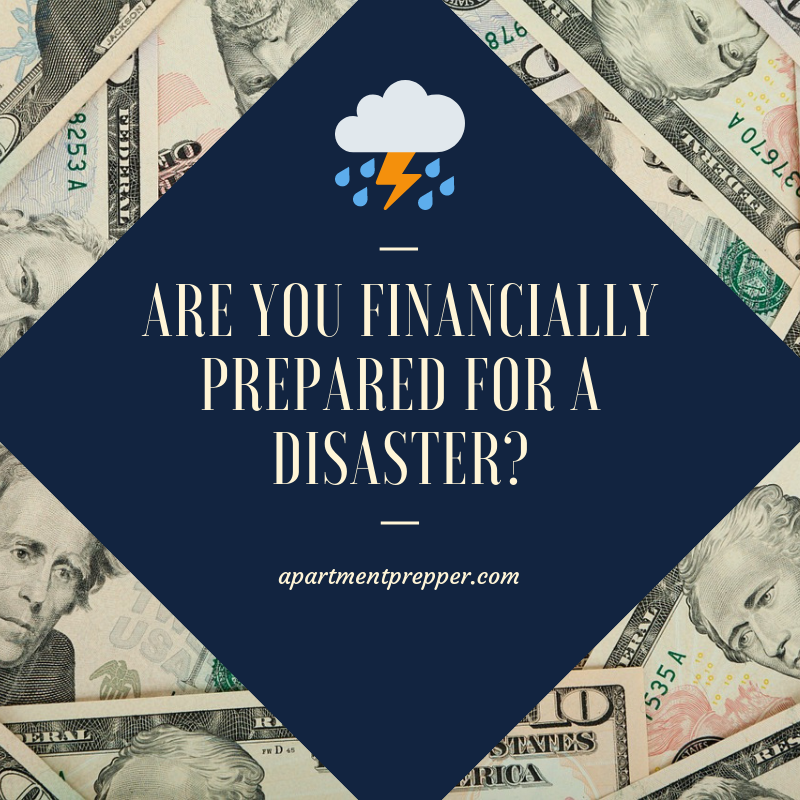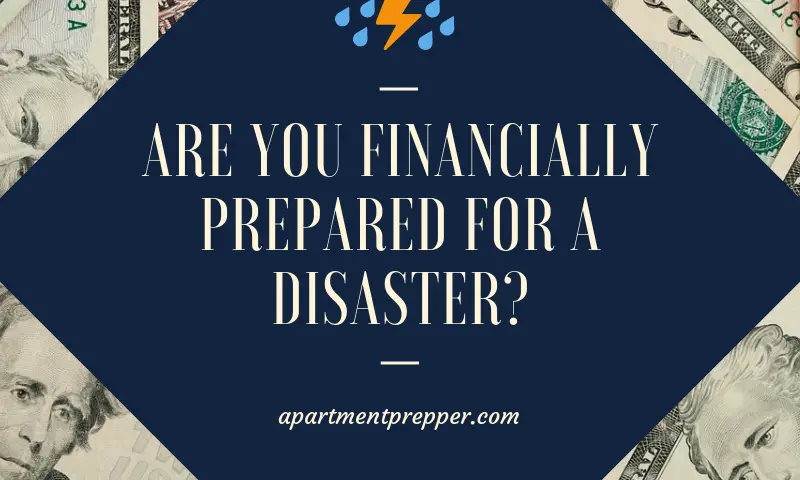This post is by Bernie Carr, apartmentprepper.com
September is National Preparedness Month and now is a good time is assess if you are financially ready for a disaster.
Here are some things to consider before anything happens
How does your job deal with disaster?
When disaster hits, most businesses shut down and therefore people are unable to go to work. Depending on the employer, you may or may be be paid for the time you are not able to get to work.
- Do you have to use vacation time or paid time off (PTO) to cover the days when the office is closed and you can’t get to work?
- Does your job notify you ahead of time if they are closing in the event of a hurricane, ice storm or other disaster?
Savings
Sometimes the disaster is not a natural one, but a financial one if you lose your job or become too ill to work. Or you could have an unexpected expense such as an expensive car repair or dental work that needs to be done right away.
Start building up your emergency fund so you have cash at your disposal. I know many experts recommend having three to six months worth of living expenses but that may seem so far fetched for many families who are already stretched financially. Find ways to cut your living expenses and save. If you have zero savings now, start with whatever you can set aside – set a goal of $100 and save whatever you can toward that goal. When you get there, set a new goal. The point is to save consistently.
Cash stash
Besides having money in the bank, it is a good idea to have cash on hand for emergencies. Cash machines and credit cards may not work during and immediately after a disaster. You also need a cash fund in the event you are unable to access your accounts due to identity theft. Set aside a cash fund and store it in a safe place in your home. This way you can pay for needed purchases such as food and gas while you are waiting for things to settle down.
Insurance
Do you have adequate insurance to cover your home or apartment in case of disaster? Many policies do not cover floods, so you may have to purchase additional coverage. Now is the time to check what you policy covers.
Document all your belongings by taking photos or video. Should you need to file a claim, you will have evidence of what you own.
Gather your documents
Make backup copies of all your financial information and make your grab and go binder that you can take with you in case you need to evacuate.
These are just ideas to get you to think about preparing financially for disasters. Ready.gov reminds us to make a plan and “Save early for natural disasters.”
If you found value in the article, please help us keep this site free by supporting Apartment Prepper on Patreon. Click here: https://www.patreon.com/apartmentprepper No worries if you are not able to, I’ll still keep writing!
Image by PublicDomainPictures from Pixabay

